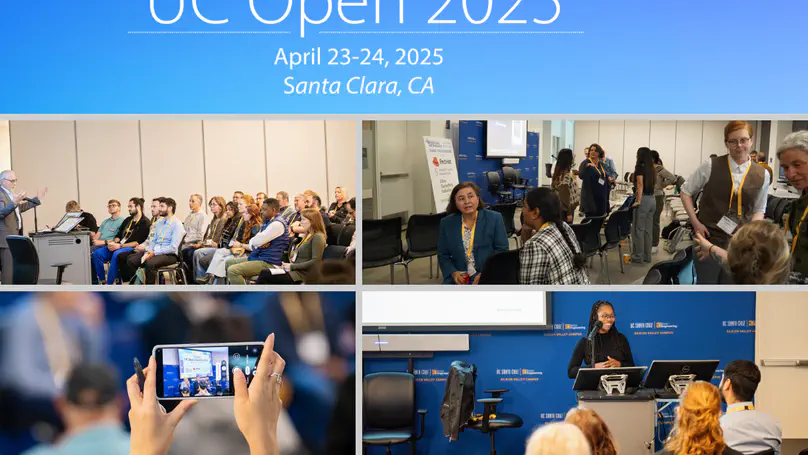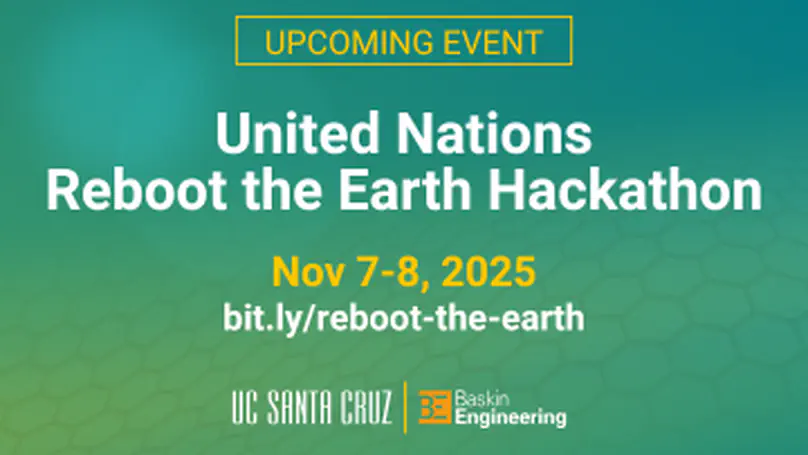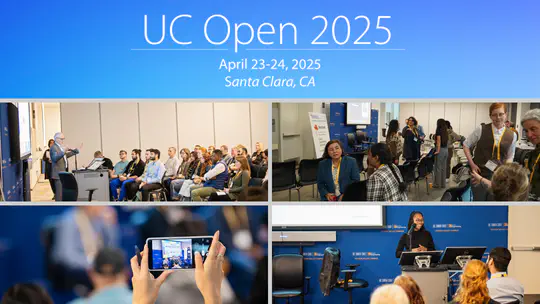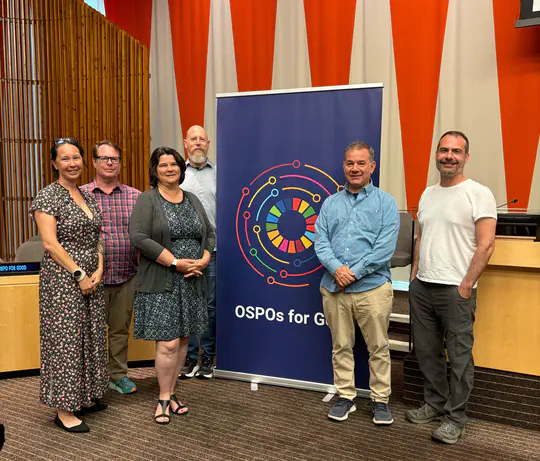🏠 Welcome!
Today’s universe of open source communities has immense potential to amplify the impact of scientific research. Thanks to a generous grant by the Alfred P. Sloan Foundation, the OSPO UC Santa Cruz is being established to provide a center of gravity that brings together everything needed to unlock that potential.
The OSPO’s mission is to create partnerships with stakeholders within and outside the UC system to promote open source literacy and best practices, helping students learn from open source communities, letting scientists use open source to accelerate research efforts, and connecting students and scientists with sponsors from industry, government, and foundations.
Through a number of continually refined programs that are designed to amplify impact of the UC research enterprise the OSPO is building a community of practitioners who aim to create and share knowledge, collaborate on practices, tools, and other ways to run successful and effective open source research efforts.
Beginning in 2024, the UCSC OSPO teamed up with five other UC campuses to form the UC OSPO Network. Building on the UCSC OSPO’s success, the Network strives to create a robust, interconnected network of OSPOs throughout the UC system. The Network is fostering innovation, promoting knowledge sharing, and establishing best practices for open-source software development and usage.
Featured Posts

Full agenda and links to videos! The University of California Open Summit (UC Open) 2025 was held on April 23–24 at the UCSC Silicon Valley Campus in Santa Clara. This was the first major event organized by the University of California Open Source Program Office (UC OSPO) Network.
🔭 About
The 1-Minute Pitch
About
Open source research efforts within the University of California face many challenges, including
- Educating students to be productive in open source projects
- Revealing the value of open source to the UC system
- Broadening engagement with industry, government, and foundations
The UCSC OSPO effort was founded by Carlos Maltzahn and Stephanie Lieggi in 2022 under an Alfred P Sloan Foundation Grant. The effort continues under the leadership of Lieggi and Faculty Director James Davis, along with OSPO incubator fellow Emily Lovell. The UCSC OSPO team, along with partners at other UC campuses, is
- Developing a community of practice of open source software projects across the UC system and associated national labs that brings mentors, students, sponsors, and open source stakeholders together
- Establishing infrastructure and opportunities for researchers to grow communities around their open source projects
- Organizing a yearly undergraduate Open Source Research Experience, a UC-wide mentorship program that works with Google Summer of Code and other global outreach efforts and engages with industry, government, and foundation sponsorships
- Creating partnerships with innovative open source teaching initiatives inside and outside the UC system
The UCSC OSPO mission is to leverage open source to expand the reach and impact of research coming from throughout the UC system.
📺 Programs

The Open Source Research Experience (OSRE) program by the Open Source Program Office (OSPO) UC Santa Cruz provides support for undergraduate and graduate students contributing to open source research efforts. The goal of the program is to seed contributor communities of open source research efforts and to help make computational research efforts reproducible. With this program the OSPO participates as mentor organization in Google Summer of Code and other outreach and sponsorship programs. The OSRE 2023 introduced the Summer of Reproducibility (2023, 2024).

This program supports the work of postdoctoral scholars aiming to create and grow productive open source contributor communities around innovative research prototypes in order to amplify the impact of their research. To be considered for this program, a postdoctoral scholar should have a research prototype with significant open source software or hardware infrastructure and a UC Santa Cruz-based faculty mentor.


